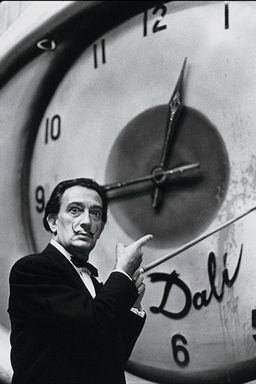welcome to
the future
Newtime: a decimal form of time

by Jesse Yoder
Most people take our time system for granted. If someone
asks ďWhat time is it?Ē there usually isnít a lot of controversy
about what system of time is being used. Nearly everyone worldwide uses a
common system of time based on 24 hours in a day, 60 minutes per hour, and
60 seconds per minute. The only relativity that enters the picture is that
the time is different depending on the time zone. So when itís 8:00 am
in New York, for example, itís 1:00 pm in London.
The origins of our 24 hour clock go all the way back to the
Egyptians and the Babylonians. The Egyptians divided the time from sunrise
to sunset into ten hours of daylight.
They also had two hours of twilight and twelve hours of night.
This system goes back as far as 1300 B.C.
The total is 24 hours per day, which we still have in our
time-keeping systems today.
The origin of our minute and second goes back to the Babylonians. The Babylonians did their astronomical calculations in a base 60 system. The first fractional place in this base 60 system we now call a minute. The second fractional place in this system we now call a second.
Newtime: An alternative system based on decimal time
This article proposes an alternative time system based on
decimal time. While there are
clear advantages to having everyone be on the same time system, there are
also some important advantages to a decimal time system.
But first, what is the proposal?
The proposal for decimal time is to switch the counting of
minutes and seconds from sixty divisions to 100 divisions.
This proposal does not include any change in the number of hours
per day. It only proposes to
increase the number of minutes in one hour from 60 to 100.
Likewise, it increases the number of seconds in a minute from 60 to
100.
What are the implications of this? It means that, under newtime, instead of the time being 1:30
pm, it will be 1:50 pm. Instead
of 3:45 pm, the time will be 3:75 pm.
Here is a comparison of relative times:
Old, Regular Time
Newtime
12:00 noon 12:00 noon
2:15 pm 2:25 pm
3:30 pm 3:50 pm
5:40 pm 5:67 pm
8:50 pm 8:80 pm
1:30 am
1:50 am
Why change to newtime?
There are several good reasons for changing to newtime:
1. Newtime divides time up into smaller quantities.
This gives people the potential of accomplishing more in the same
period of time. Instead of 60
minutes per hour, there are now 100 minutes.
Instead of 1440 minutes per day, there are now 2400 minutes per
day. Instead of 3600 seconds
in one hour, there are now 10,000 seconds per hour.
2. The advent of digital time makes the base-60 method of
measuring time obsolete. When
the only type of clocks were analog clocks, base-60 type clocks made more
sense. With the advent of
digital clocks, counting down from one minute 20 seconds to 59 seconds
introduces a gap as the time reaches the one-minute mark.
It would be more intuitive to go from 101 to 100 to 99 seconds,
than to go from 1 minute 1 second to 1 minute 0 seconds to 59 seconds.
3. Newtime provides a more fine-grained analysis of time
for sporting events. A
basketball or football game played on newtime would have that many more
time parameters built into it. While
it will not literally make the game last longer, the possibilities for
additional plays is increased because the unit of time is smaller. The
same idea applies in daily life.
4. The advent of computers and other time-oriented equipment makes it necessary to measure time in every smaller chunks. Computer time is now measured in nanoseconds. While we donít need to measure our ordinary time in nanoseconds, newtime gives the option of having a more fine-grained analysis of time.
How to convert to newtime
It is difficult to convert to newtime until clocks become available (we're working on it!). Hopefully, this will be soon. In the meantime, you can become familiar with the concept of newtime and begin to think in terms of 100-minute hours and 100 second minutes. Newtime will be here, sooner or later!
Copyright © 2002 Flow Research, Inc.